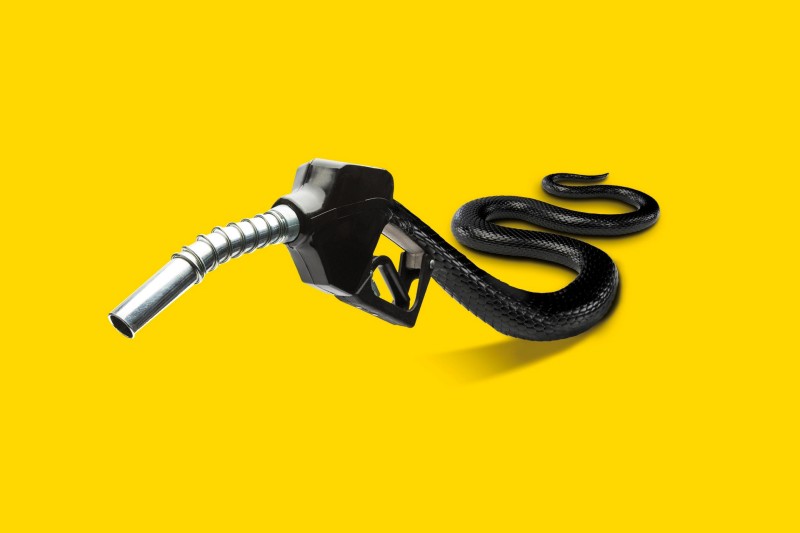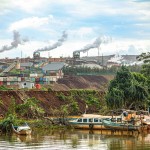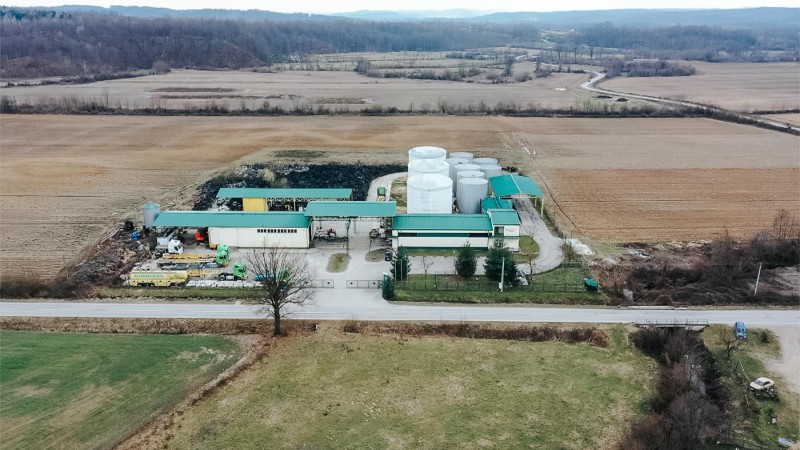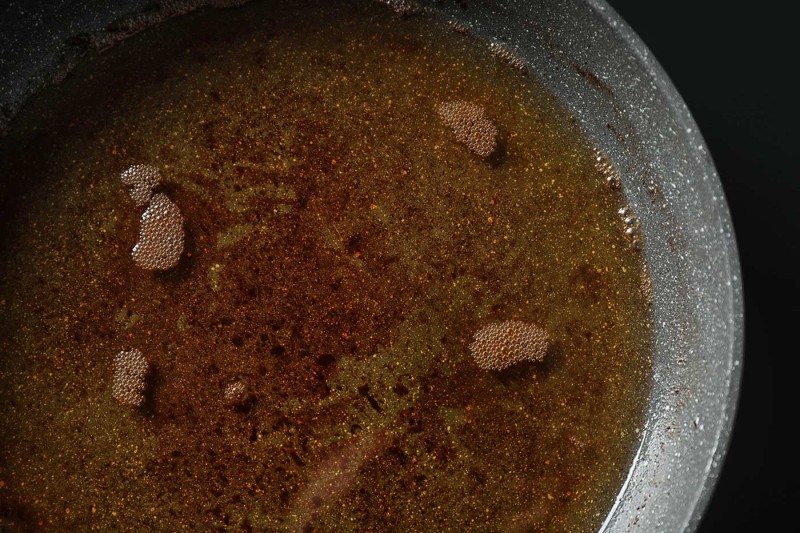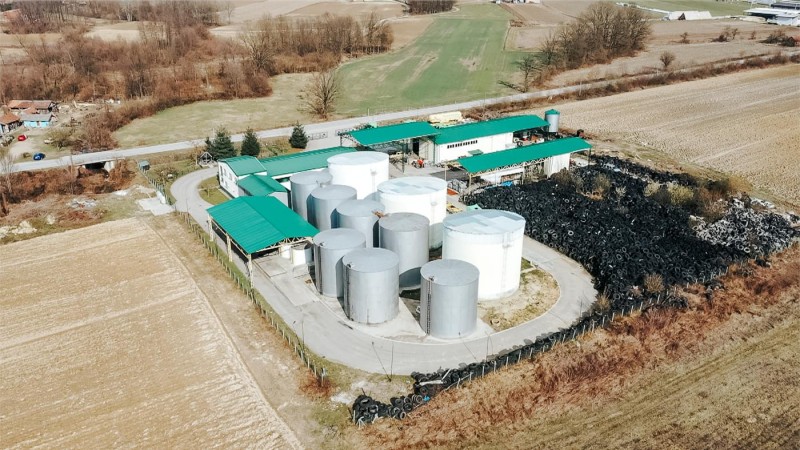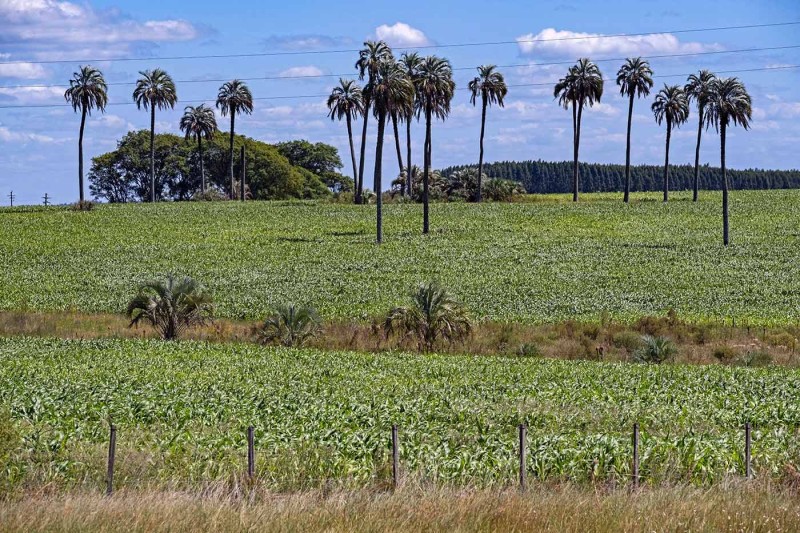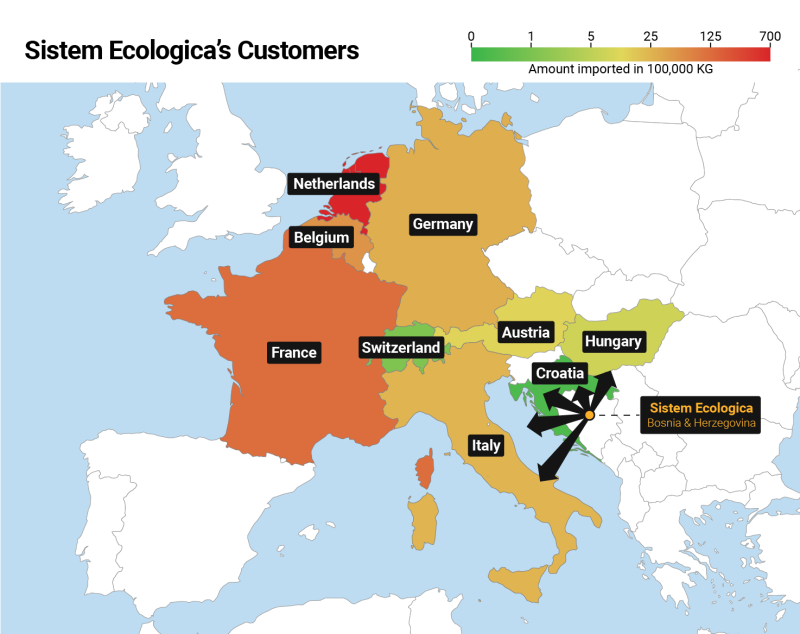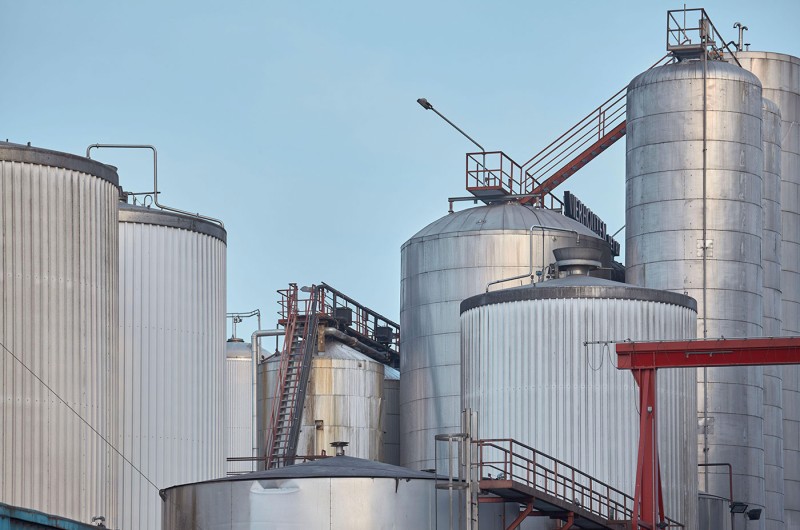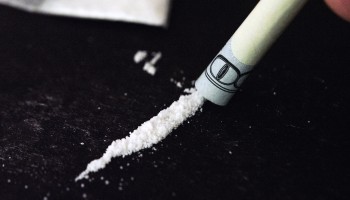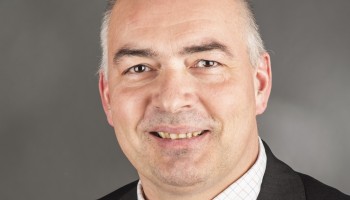The lights were low in the historic Hulstkamp building in Rotterdam as guests sat down for dinner at a 2017 gathering of officials in the fats and oil industry. At one table sat three men who had built reputations — and fortunes — as traders in a new type of biofuel made from used cooking oil that was taking Europe by storm.
Cornelis Bunschoten reportedly became one of the 500 richest people in the Netherlands after making a fortune as chief executive of major biofuels producer Biodiesel Kampen B.V. Near him sat Wilfred Hadders, a director of another Dutch biofuels company, Sunoil Biodiesel B.V., who at one point amassed 18 luxury cars, including a rare Porsche 911.
But their success would be fleeting. Since that dinner, both men have been investigated for running schemes that passed off cheap traditional biofuels as expensive next-generation varieties made from used cooking oil (UCO).
Bunschoten was sentenced to 20 months in prison for fraud, forgery, and money laundering in 2019. Another trader at the table that night, Gianni Rivera, is on trial for laundering money for him. And Hadders’ company, Sunoil, is being investigated for running a “large-scale fraud” using forged biodiesel certificates.
All three are accused of exploiting one of the EU’s flagship climate policies, which aims to curb the bloc’s transport emissions by encouraging companies to blend biofuels made from UCO into gas or diesel. But a new investigation by OCCRP, Follow the Money, Center for Investigative Reporting (CIN), and De Tijd found they were linked in other ways too.
Over the years, four companies that the three men either owned or worked at bought thousands of tons of fake UCO biofuels from the same supplier: a Bosnian firm that EU investigators say was running its own lucrative scam.
They were among 17 companies in nine countries that investigators say purchased cheap soy biofuels mislabelled as expensive UCO-based fuel from the Bosnian company, Sistem Ecologica LLC. Details laid out in an unpublished report by the EU’s anti-fraud office allege the company’s owners falsified paperwork to inflate their profits while also avoiding millions of euros in customs duties.
Bosnian authorities declined to renew the license for Sistem Ecologica’s factory in January 2020, after the EU’s anti-fraud office started investigating. The company’s owners now face fraud charges in Belgium, and an investigation is ongoing in Bosnia and Herzegovina.
Bunschoten’s lawyer didn’t respond to requests for comment. Rivera’s lawyer also declined to comment. Hadders told Follow the Money that Sunoil “was and is not aware of malpractices” by Sistem Ecologica, but did not reply to questions about the investigation into his own company.
Nenad Kokanović, one of Sistem Ecologica’s owners, also denied his company was involved in fraud when approached by CIN. He said the truth “would unfold very soon,” but declined to answer detailed questions.
Reporters tried multiple phone numbers and an email address listed online for his business partner, Borivoje Vukadinović, but received no response. A lawyer representing Sistem Ecologica did not respond to a request for comment.
Customs in Belgium said companies in the EU often fall victim to criminals selling fake biofuels — which they dubbed the “biodiesel mafia.”
“Biodiesel fraud is (almost) always organized internationally, involving several member states but also several third countries,” customs said in a statement. “Unfortunately, as an importer, regardless of whether they were aware of the fraud, they are jointly liable for the evaded duties.”
The EU’s taste for biofuels has grown since 2009, when Brussels mandated that 10 percent of the bloc’s transport fuel must be renewable by the end of the following decade. Demand has surged notably since 2018, when the bloc increased that target to 14 percent by 2030.
Regulations also require fuel vendors to show the biofuels they blend into gas and diesel don’t cause environmental harm. Traditional biofuels made from soy and palm oil drive deforestation in Latin America and Asia, so energy companies are seeking more sustainable alternatives. Biofuels made from UCO are particularly attractive because, as waste that has been converted into fuel, some member states count them double toward the EU’s 14-percent target.
As demand has boomed, energy majors like Royal Dutch Shell, TotalEnergies, and Repsol have announced an avalanche of investments in new refineries that can process UCO. But this gold rush has created a system ripe for fraud.
UCO-based biofuels are significantly more expensive than those made from virgin oils, but they are difficult to tell apart with the naked eye and cargoes are rarely tested when they enter the EU. With a few simple tweaks to the paperwork, unscrupulous traders can add millions of euros to the value of a shipment by misdeclaring it as UCO, with little chance of getting caught.
Fraud in the UCO sector is not only sapping the EU’s budget, but undermining the bloc’s climate goals. Soy and palm oil, two common feedstocks for traditional biofuels, are considered so environmentally damaging that the EU has agreed to phase them out by 2030. But fraud scams mean they can still make their way into the bloc undetected.
Chelsea Baldino, a senior researcher at the nonprofit International Council on Clean Transportation, said UCO fraud “completely undermines” the EU’s efforts to phase out traditional biofuels.
“Particularly with vegetable feedstocks, they have really, really high land use emissions that, in some cases, make them even worse for the climate than using petroleum,” she said.
Too Good to be True
Milorad Dodik, the then-prime minister of Republika Srpska — one of the political entities that makes up Bosnia and Herzegovina — smiled as he cut the red ribbon to open a new biofuels factory in the northern town of Srbac.
It was September 2008, and Sistem Ecologica’s factory promised to be the first in the country that could make advanced biofuels from waste oil. Its owners had pledged the facility would produce 100 tons of biofuels every day, which Dodik’s government planned to use to power a new fleet of eco-friendly buses.
Sistem Ecologica, owned by Bosnian-Americans Kokanović and Vukadinović, expanded its business significantly in the following years, with data from the Bosnian tax authority showing it sold around 30 million euros’ ($34 million) worth of biodiesel to the EU in 2017.
The company claimed this biodiesel fuel was made from UCO exported from the U.S. by two companies linked to Kokanović and Vukadinović. Sistem Ecologica said it processed this UCO in its Bosnian factory, before exporting it to refiners and traders in the EU.
But in early 2018, French customs noticed that Sistem Ecologica’s biodiesel was extremely high quality, according to former Bosnian tax inspector Nenad Kojić, indicating the fuel was not made from UCO but traditional biofuels. Soon after, he said, Slovenian customs raised the alarm for similar reasons.
Both shared their suspicions with Bosnian tax authorities, but were told everything was in order, Kojić said.
The following year, the EU’s European Anti-Fraud Office (OLAF) opened an investigation. On OLAF’s orders, customs in the Croatian port of Rijeka tested nine containers that were en route from the U.S. to Sistem Ecologica’s factory. Lab results confirmed what French and Slovenian customs officers suspected: they contained not UCO, but ready-made biodiesel.
When OLAF investigators visited Sistem Ecologica’s factory, they found the machinery in disrepair. Electricity bills showed it used only a fraction of the energy needed to process all the UCO the company had claimed. The supplier that supposedly provided the methanol used in the refining process, meanwhile, was found to be a front.
When OLAF examined customs declarations filed by Sistem Ecologica’s U.S. suppliers, they found 83 shipments that had been described as biodiesel when they were exported, but were declared as UCO when they got to the port in Croatia.
"The facts established demonstrate that the alleged processing actually did not happen,” said an OLAF report on the investigation. “The product imported from the U.S. was already biodiesel."
U.S. biodiesel produced from soybeans is the cheapest on the market. As of late 2019, when OLAF visited Sistem Ecologica’s factory, some soybean-based fuels were selling for around 730 euros ($810) a ton in northern Europe while UCO-based biofuels were selling for around 1,100 euros ($1,300) a ton, according to an expert analysis commissioned by the advocacy group Transport and Environment.
As well as illegally boosting its profits, OLAF estimated Sistem Ecologica also avoided paying millions of euros of EU “anti-dumping” duties — taxes that should have applied to imports of biodiesel from the U.S.
Sistem Ecologica’s owners deny they committed fraud. After OLAF shared its findings with member states, Kokanović and Vukadinović went to the European Court of Justice to get the investigation annulled, arguing they had not been informed of the probe. A judge dismissed their suit last year.
They are now facing criminal charges in Belgium for attempting to defraud customs and damaging the EU’s finances, according to a preliminary judgment that allowed the case to be filed in March last year. The next hearing is due this September.
The European Public Prosecutor’s Office said its German office is also making a preliminary investigation into the alleged scam.
Major Players
After OLAF started probing Sistem Ecologica, Bosnia’s tax authority took a closer look, too. According to the agency’s calculations, the company sold more than 115,000 tons of biofuels to nine EU countries, including France, Germany, Italy, and the Netherlands.
The fuel was bought by at least 17 companies, ranging from small-scale refiners to Hungarian giant Mol, which recently announced it will start blending UCO biofuels into its diesel as part of a $1 billion investment in sustainable energy. Some buyers appear to be smaller trading companies based in tax havens such as Switzerland and Luxembourg.
The buyers also included the four companies linked to the accused biofuels fraudsters who dined together at the 2017 trade dinner in Rotterdam: Rivera, Bunschoten, and Hadders.
One was Hadders’ company Sunoil, which Bosnia’s tax authority found had bought nearly 7.8 million euros ($8.8 million) worth of the fake UCO biofuels from Sistem Ecologica. Dutch police started investigating the company for biofuels fraud and forging sustainability certificates in 2020, according to a person familiar with the investigation, who requested to speak anonymously. Prosecutors confirmed the probe was ongoing, but declined to comment further.
Bosnia’s tax authority said Sistem Ecologica also sold more than 44,000 tons of biofuels to Biodiesel Kampen, whose CEO Bunschoten was convicted for fraud. Bunschoten’s lawyer did not respond to requests for comment.
Two companies linked to Bunschoten’s alleged conspirator, Rivera, also bought from the Bosnian company: one was U.K.-based Greenergy Fuels Ltd. where Rivera was working as a biofuels trader when he was accused of laundering money for Bunschoten.
Rivera is being tried in a London court for allegedly moving money around for Bunschoten. His lawyer said he denied all charges, but refused to discuss the case further while it is ongoing. (Greenergy was also investigated, but the probe was dropped. The company declined to comment.)
The same year Rivera joined Greenergy, 2015, he founded Biogra Trading Ltd, which also bought thousands of tons of biofuels from Sistem Ecologica. Today Biogra — which Rivera still owns — operates in dozens of countries and recently partnered in a huge refinery in the United Arab Emirates that supplies UCO biodiesel to the EU.
OLAF’s investigation into Sistem Ecologica precipitated a cascade of legal cases involving Biogra.
After the anti-fraud agency shared its findings with EU states, Belgian authorities said Biogra Trading owed them more than 3 million euros ($3.4 million) in duties. To cover the debt, Biogra seized a shipment worth roughly the same amount from Waste Oil Trade LLC — one of the U.S. companies that had supplied Sistem Ecologica and is related to the same people.
Biogra sued Waste Oil Trade and Sistem Ecologica’s other U.S. supplier, Better Energy Solutions Today Inc., for damages. Waste Oil Trade then filed its own suit. A lawyer for Biogra declined to comment because the cases are ongoing.
Questioned by CIN about his relationship with Rivera, Sistem Ecologica’s co-founder Kokanović smiled and said: “Don’t ask about these kinds of things.”
History of Biofuels Frauds
‘Weaknesses in the System’
In 2016, the European Court of Auditors warned that “weaknesses in the system for certifying sustainable biofuels could undermine” the EU’s transport emissions targets. Almost five years later, Belgium, France, Germany, Luxembourg, and the Netherlands echoed that concern, and called for stronger supervision.
Ciarán Cuffe, a member of the European Parliament (MEP) for major UCO user Ireland, said the EU is still not doing enough to address the problem. “The continuing concerns about UCO import fraud ... are a clear indication that the current rules are insufficient to combat and prevent fraud cases,” he said.
Analysts have repeatedly pointed out that Europe’s suppliers collect far less UCO than they claim to export. One analysis by think tank Farm Europe estimated that in 2019, Malaysia may have exported up to eight times as much UCO to the EU as it could have possibly collected inside the country.
Industry sources blame weak regulation by the International Sustainability and Carbon Certification (ISCC) system, which certifies which companies can supply the EU with UCO. Critics say it relies on self-reporting from companies and lacks systematic testing of imports into the EU — a setup one analyst described as “essentially an honor system.”
Patrick Lynch, a former biofuels trader, said that even though in theory the EU’s biofuels market is one of the most tightly regulated in the world, not enough is being done to enforce those regulations.
"There should be a better way to police these auditors,” he said.
The ISCC did not respond to repeated requests for comment.
Reliable data on how much UCO the EU is importing are also hard to come by. The European Commission won’t release figures showing where member states are buying from — despite requests from MEPs, and even after the EU’s official ombudsman censured them for “maladministration.”
Cuffe, the Irish MEP, said the Commission’s refusal is “a clear indication that the current rules are insufficient to combat and prevent fraud cases.”
A spokesperson for the Commission said it doesn’t have access to figures showing how much UCO is imported, only the amounts that have been certified. He said the Commission takes fraud allegations “seriously” and the new database is designed to “improve the transparency of the biofuels market.”
“For us, ensuring the sustainability of biofuels and other forms of bioenergy is crucial and preventing fraud in certification is essential to ensure sustainability,” the spokesperson said.
In a bid to assuage concerns, the Commission is developing a database to track how biofuels are used for transport fuel across EU member states. After repeated delays, it was launched late last year, but adoption has been slow. When OCCRP reviewed the new database in April, most of the EU’s certified suppliers had not provided any data.
Barbara Smailagic, policy officer at the advocacy group Transport and Environment, said officials at the Commission had recently joked to her that “biofuels certificates … don’t really work.”
“They know it themselves,” she said.
Do you know more about this story?
Some of OCCRP’s most important journalism has come from anonymous or confidential tips.
If you know more about the issues we've covered here, or have documents or evidence of wrongdoing you'd like to get into the open, OCCRP can help.
